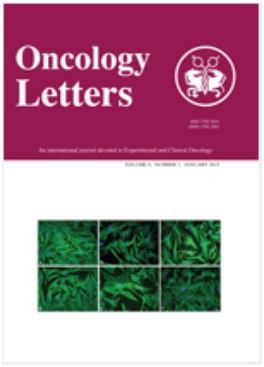Alterations in the CCND1 gene affect the cell cycle and are frequently observed in a variety of cancers. While the most frequent mutations that occur in thyroid tumor tissue have been characterized, the genetic factors that predispose individuals to differentiated thyroid cancer (DTC) remain to be elucidated. The present study examined whether the CCND1 c.723G>A (rs9344; p.Pro241=) and c.669C>T (rs3862792; p.Phe223=) variants have an impact on DTC susceptibility. A cohort consisting of 652 patients diagnosed with DTC were analyzed and comapred with a reference group of 799 subjects from the general population. Pyrosequencing was used as the genotyping technique. In order to determine the statistical significance of differences observed in the genotypic and allelic frequencies between the compared groups, GraphPad Prism 4 was used. At the rs9344 locus in the DTC patients, a higher frequency of allele A [P=0.032; odds ratio (OR), 1.18; 95% confidence interval (CI), 1.014–1.361] and the AA homozygous genotype (P=0.028; OR, 1.41; 95% CI, 1.059–1.989) was observed compared with the control population group. The differences were stronger for papillary carcinomas (OR 1.45; 95% CI, 1.059–1.989), but were not significant in follicular tumors. No statistically significant differences were noted in the frequency of genotypes or alleles at the rs3862792 locus in the examined groups. The present findings indicate that the c.723A variant of the CCDN1 gene may be a susceptibility low penetrance allele in the development of papillary thyroid cancer in the population studied, however it does not impact on multifocality, metastatic ability or age at diagnosis. A cumulative effect of the analyzed CCND1 gene variants was also excluded.

